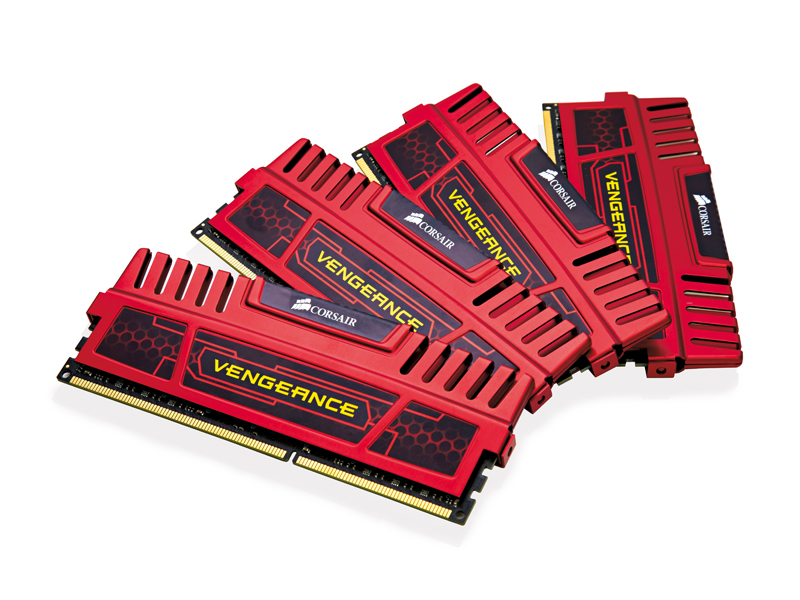TechRadar Verdict
Pros
- +
Rock solid performance
- +
Huge bandwidth with X79
Cons
- -
Not a huge performance boost
- -
For a fair chunk of cash
Why you can trust TechRadar
Not only is a new extreme/enthusiast Intel platform a boon for motherboard manufacturers, it's also very good news for the memory manufacturers. It's been a long time since the memory guys had any good news, so the fact that the X79 platform comes with a special quad-channel memory configuration is great. Isn't it?
Corsair thinks so, and has released a new lineup of RAM modules set up for the platform. The latest range of quad-channel Vengeance kits are rated at 1,866MHz out of the box, with full XMP 1.3 compliance built in.
Like the G.Skill RipJawsZ kit, the XMP 1.3 makes for a slightly tighter integration of the use of memory profiling to make setting clockspeeds, latencies and voltages correctly for any supporting motherboard.
Memory matters
The difficulty for companies such as Corsair is that these days, memory actually makes little difference at the top end. The performance difference between a decent 1,600MHz kit and a pacier 1,866MHz bumper pack is small, especially at this thick end of the memory capacity wedge.
With 16GB of DDR3 jammed into your machine, whether it's running at 1,600MHz or 1,866MHz, it's going to be going like a greased weasel down a slide. The difference in gaming is negligible – for example, there was just one frame in it with our World in Conflict benchmark, which can easily be put down to simple testing variance.
More immediately obvious is the difference in actual memory bandwidth. The Corsair Vengeance Racing Red kit manages a whopping 42GB/s against the 1,600MHz G.Skill kit's 38GB/s. Even at the lowest ebb, you're still getting great numbers.
In overclocking terms, the Corsair kit was rock-solid at its rated frequency in our Sandy Bridge E tests, easily getting up to the same 4.8GHz overclock that the G.Skill kit managed. Neither kit will bat above its rated speeds though. As hard as we tried, we couldn't push the Vengeance Racing Red modules up to the next point, 2,133MHz. But really that's just willy-waving. Such speeds don't give you a huge amount of extra real-world performance for your money.
TechRadar Labs

Video encoding performance
X264 v4.0: FPS: Higher is better
Corsair Vengeance: 55
G.Skill RipJaws-Z: 55
Memory bandwidth
SiSoft Sandra: GB/S: Higher is better
Corsair Vengeance: 42
G.Skill RipJaws-Z: 38
Gaming performance
WiC: FPS: Higher is better
Corsair Vengeance: 112
G.Skill RipJaws-Z: 111
And therein lies the rub. This Corsair kit is on the market for around £133 at the time of writing, whereas the slightly slower G.Skill kit can be picked up for less than a ton. Is the extra performance really going to be worth the cash you're stumping up for the extra clockspeed?
As a gamer, the answer will most likely be no. Realistically for us PC gaming folk, even the G.Skill kit is probably overkill, and speeding up those modules won't give you much extra either.
For Photoshop obsessives and video manipulation junkies, £133 for 16GB of superfast DDR3 probably isn't a bad deal. But that's a bit of a niche market for such an enthusiast product. None of that can take away from the fact that these Corsair modules run perfectly at their rated specs, happily keeping the system ticking over during all the overclocking.
But as we've said, it's a niche product. Most of us wont need the heights of this kit, though the same could easily be said of the whole Sandy Bridge E platform. So, in for a penny and all that…
Follow TechRadar Reviews on Twitter: http://twitter.com/techradarreview
